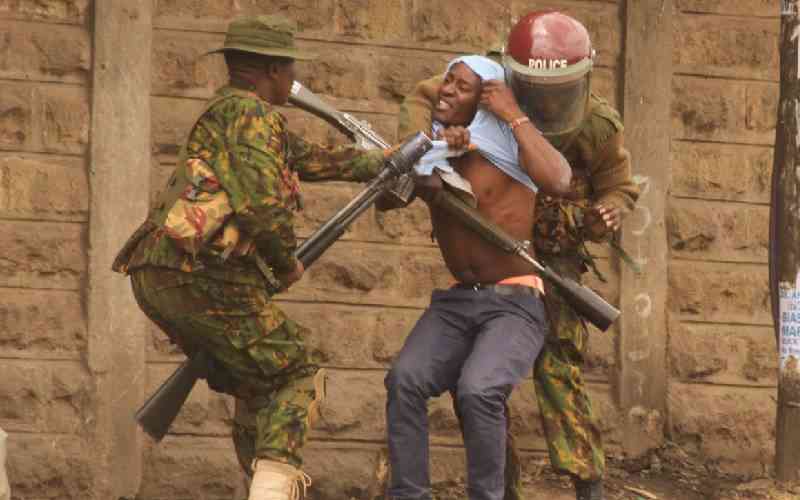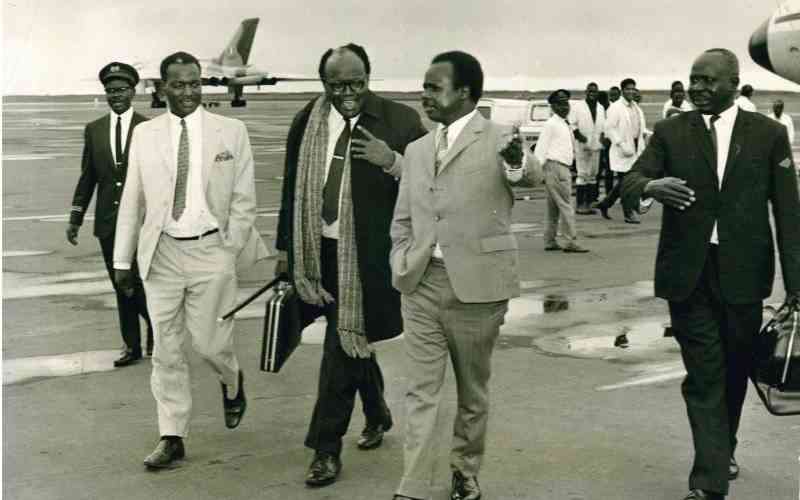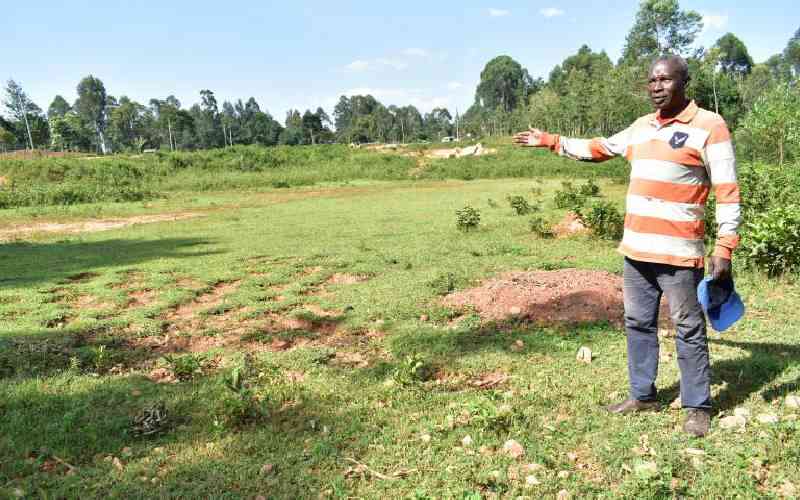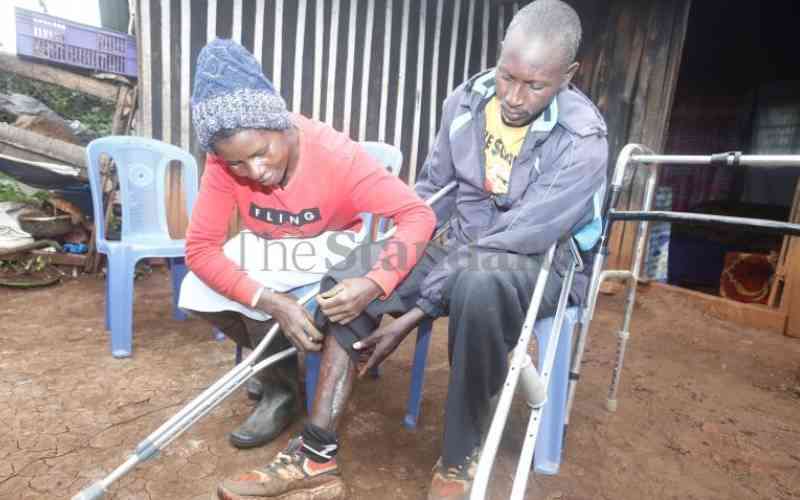Long, miserable wait for families of people killed by wild animals
It has been a long, frustrating wait with no end in sight for Robert Kimori, whose wife was trampled and killed by an elephant six years ago on June 5, 2017.
On the fateful day, 18-year-old Carolyn Wughanga, Kimori's wife, encountered the killer beast as she collected firewood on the outskirts of Voi town. Her husband had remained home watching their two sons, Dolton Kimori and Johnson America.
“She told us she would be back in 30 minutes but we waited for almost three hours before we received the sad news that she had been attacked by a jumbo,” said Kimori.
Devastated and grieving, Kimori rushed to Moi County Referral Hospital in Voi town, where he found the lifeless body of his wife lying at the morgue with intestines out.
“My wife met a painful death and I will never forget our life together as a couple. Her demise is a big blow to me and it has left a void," says Kimori.
- .
Keep Reading
- How UDA action snuffed the life out of demos in the grassroots
- Jean Marie Seroney family asks for help to reclaim Sh3bn land
- What happens when the State wants your land
- Hope for locals as electric fence keeps wildlife from their homes
"I am now very lonely without her in my life. We used to struggle together to make ends meet and fend for our children. Now I have to play that role by myself and it is not easy,” he adds.
During Wughanga's burial, Kenya Wildlife Service (KWS) and county government officials promised to help Kimori and compensate him for the loss.
But six years on, Kimori is disappointed and desperate saying that none of the officials honoured their promise of aid, not even compensation form KWS.
He says he has endured the double tragedy of being a widower with two young children to fend for single-handedly, while waiting for the delayed compensation.
Kimori, who now works as a night guard at Zion Plaza Hotel in Voi town, says he was forced to look for a steady source of income to cater to his children’s needs.
“It was a big challenge for me to raise the children with no formal employment. My wife left a huge gap that I believe no one will fill,” he says.
KWS statistics show that 20 people were killed, 67 injured and 1,066 farms destroyed since 2014 in the county. The animals responsible for this damage include elephants, lions, buffalo, leopards, cheaters, hyenas, snakes, and hippos.
The Standard on Sunday caught up with Kimori along with other residents whose loved ones had fallen victim to wildlife attacks who had attended a compensation forum at Voi Stadium last week.
The event involved the launch of countrywide human-wildlife conflict compensation payouts for victims of wildlife attacks and was presided over by Wildlife and Tourism Cabinet Secretary Penina Malonza.
While launching the scheme, the CS said over Sh908 million will be paid to victims of wildlife attacks by the end of the first phase.
She said the government has set aside over Sh1.2 billion to clear all pending compensation claims in 46 counties.
Malonza handed over Sh52 million to compensate families in Taita-Taveta county. Although she did not state the number of beneficiaries of the sum, the KWS estimates the figure to be around 350.
“The funds released today are part of the payment for 2014-2019. The other backlog payments will be cleared soon as funds have already been set aside this financial year,” she said.
However, Kimori and other claimants were left confused since it was not made clear whether they were among those to be compensated from the amount.
“We have not seen the list of beneficiaries and we do not know whether we are among those to be compensated. KWS has done everything in secrecy and we do not know who to turn to now. Getting compensation has been like just chasing a mirage,” Kimori said.
He said for six years now, he has been desperately waiting for compensation in vain, lamenting that the government had abandoned them.
“Life has been hell after I lost my wife. Pursuing the compensation has become a nightmare to me,” he said with anger in his voice.
It has also been a long wait for Joyce Mwembe, a resident of Ndii on the outskirts of Voi town whose crops were destroyed by elephants without recompense.
“I came here today expecting to get compensation for my crops destroyed by elephants but in vain. I do not know whether I am on the list of those to be compensated,” she said.
Ngoda Kilele, another victim from Maktau in Mwatate sub-county said before an attack by lions, he had been depending on livestock for survival.
“My livestock were all wiped out by marauding lions with no compensation,” he says.
The farmer said villages like Msorongo, Kwamnengwa and Maktau have been overrun by lions and elephants that have been killing people and livestock besides disrupting learning in local schools.
“We have been depending on livestock rearing and rain-fed agriculture which has turned out to be an illusion due to unfavourable weather and frequent wildlife invasions on our farms. This has aggravated food insecurity and relief dependency syndrome, thus reducing locals to paupers,” noted Kilele.
Mwatate MP Peter Shake asked the government to hasten the compensation process to cushion affected families against the effects of the destruction caused by wildlife.
“Locals are now desperate over delays in wildlife conflict compensation and there must be timely compensation," he said.
Shake said wildlife attacks continue to rise unabated amidst concerns over delayed compensation of relatives of victims of the attacks and crop destruction.
“KWS is not responsive to the plight of the local community that has been left on their own to protect their lives and property," said Shake.
"The area is overrun by marauding wild animals that threaten human lives besides killing, destroying food crops, and disrupting learning activities,” he added while calling for a lasting solution to the wildlife menace. BY THE STANDARD MEDIA












Post a Comment